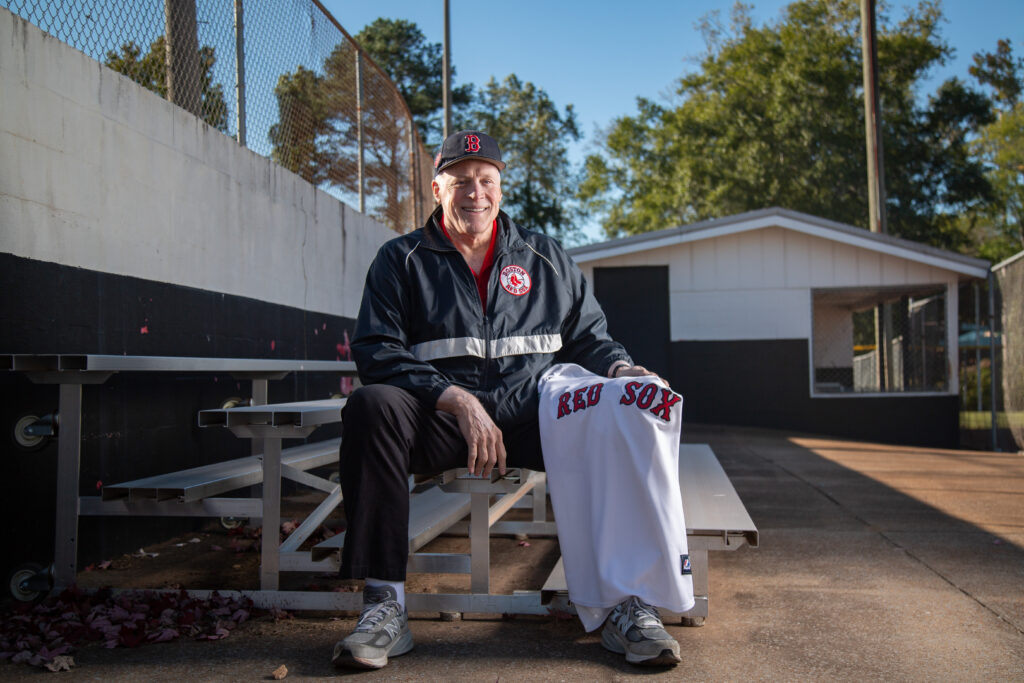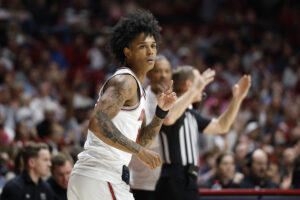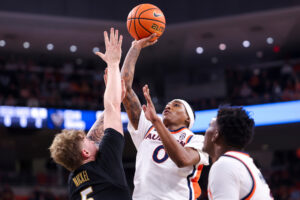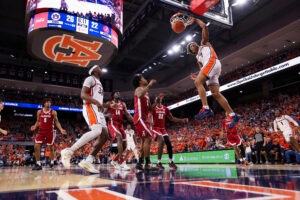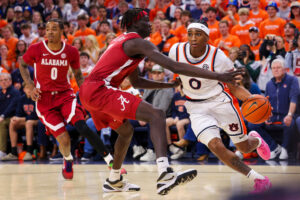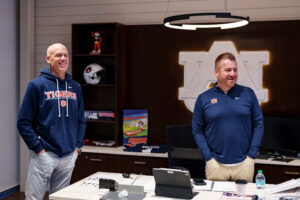Jack Baker’s rise from his humble, faith-based roots, to playing for the Boston Red Sox, to his leadership duties with the Fellowship of Christian Athletes (FCA), is one of perseverance and prayer.
As one of six children growing up during 1950’s and 1960’s Birmingham to Ned and Lucile Baker, Jack Baker learned the values of hard work and sacrifice while working for the family business, Baker and Sons Dairy. He began work at 12, and by 16, started to own his own truck as the family sold to grocery stores.
“My mother learned early in her life the role that older siblings were supposed to take the lead and help with the younger kids. There were specific jobs to help Mom and Dad and it was understood that these things needed to be done for the good of everyone,” Jack stated. “We learned that if everyone didn’t lend a hand with something, it made things harder. Through those times, it was easy to pick up and understand teamwork—it started at home. Mom promoted that in all of us and it was part of life that lit our path in the future.”

The Baker siblings were given a choice of two sports to compete in—due to limited transportation available to the family and logistics—and Jack chose baseball and basketball. While at Ramsay High School, Jack wasn’t highly regarded for his baseball talent, but had his eyes set on helping the family business when he entered Auburn University in the fall of 1967. However, at 6’5 and 220 pounds, the athletic staff at Auburn were quick to seize on Jack’s potential.
“As freshmen at Auburn, we were all required to take a P.E. (physical education) class. The coach of the class tried to talk me into playing football and basketball, but upon learning that I had played baseball in high school, told me about the try-outs that were being held on Monday,” Jack said. “While I explained my playing time had been very limited, he countered with the fact that it was an open tryout and I had nothing to lose. Then he said, ‘Son, try out and give it your best. You’ll make the team or try your best and know you weren’t good enough. I had once wanted to be a doctor and I’m a P.E. coach at Auburn. You don’t know how many times over the last 20 years I thought about that. I don’t know because I never tried.’ I couldn’t pass it up.”
Jack hoped to try out for pitcher, his favorite position in high school, but quickly found a large line of hopefuls at that position. Another door opened, however, when he noticed no one was trying out for first base. Thus, Jack became a member of the Auburn baseball team.
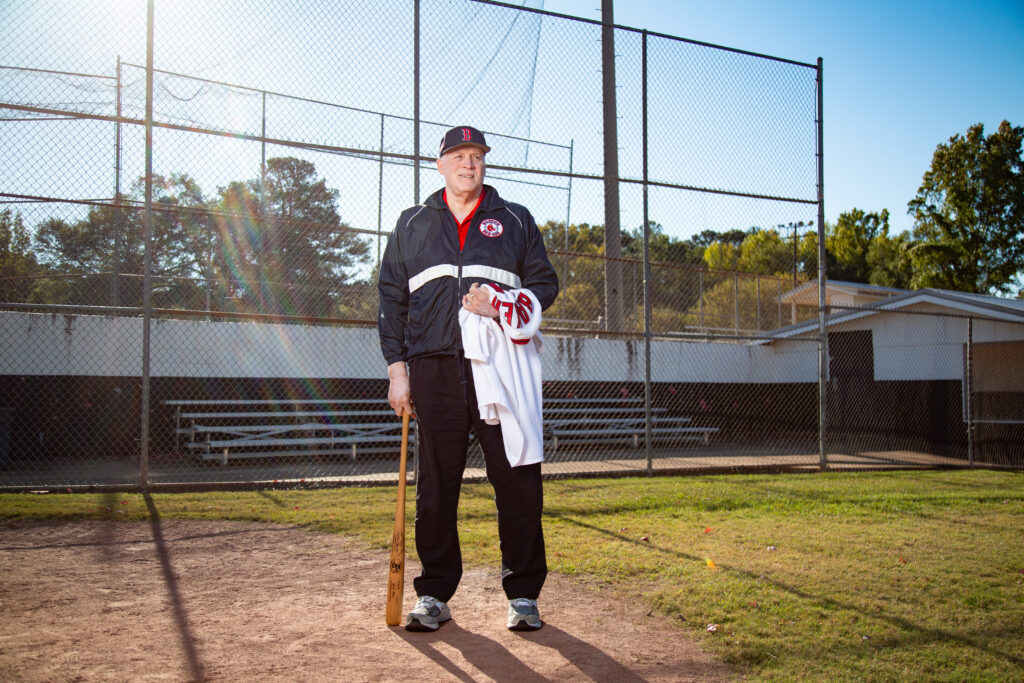
Jack’s initial two years were largely unnoteworthy; he sat on the bench his freshman season and took a redshirt his sophomore year. His junior season began with a bang, however, as he hit a game-winning home run against the West Virginia Mountaineers. He played sporadically during his junior season but continued playing in summer leagues, where he honed his skills.
“With the Birmingham 19-year-olds team, I was able to go to big tournaments in Altoona, Pennsylvania, with the All-American Association. That’s where I was able to really lose the ball against some good pitchers, hitting two or three home runs,” Jack stated. “It translated to noticeable progress when the spring started.”
By Jack’s senior season, life on the team had drastically changed. The former starter at first base was moved to third, and Jack received the starting nod in his place. The Tigers had an All-Star team in the making now, with the top five batters all eventually being drafted into the big leagues.
Jack was eventually named to NCAA District 3 2nd-team All Star his senior year. Prior to the year, he had also been drafted in the 1971 draft by the Boston Red Sox, further extending his baseball career into territory he had never envisioned. He also closed the door on his education later that autumn, finishing his degree at Auburn.
“Having a chance to sign was really outside of my vision in college—I didn’t think anything like that would happen,” Jack explained. “I really hoped to get a letter jacket and go back to my high school coach to tell him he should have been playing me.”
Jack’s time with the Red Sox organization brought a complete change to his life. He played in A-level for the Williamsport Red Sox alongside future Hall-of-Famer Jim Rice, then played 125 games for the Winter Haven Class-A Florida State League.
An injury during the 1973 season limited Jack to 89 games, but he was promoted in 1974 to the AA Bristol Red Sox, where he hit 27 home runs and had 105 RBI. He led the Eastern League in both categories and was chosen as All-Double-A All-Star at first base.
The year 1975 saw a promotion to Triple-A with the Pawtucket Red Sox, where in 132 games, Jack hit 18 home runs and drove in 63 runs. In 1976, he transitioned with the team as they became the Rhode Island Red Sox and played in 133 games, hitting 36 home runs and driving in 80 runs. He also appeared twice during the season as a relief pitcher.
Following the ‘76 season, Jack was called up to Boston after Rhode Island’s year ended—the dream of playing in the major leagues becoming a reality.
“I think the reason why it meant so much is because I always had to fight for it. I had to scratch and claw for playing time in high school, was a walk-on in college and had to earn my start, after a long time of paying dues. So many big-name prospects would fall into the trap of distraction, whether it was drinking, drugs and the partying lifestyle,” Jack said. “All of the lessons in responsibility as a kid helped me stay on track. It doesn’t guarantee you’ll make it but having that kind of upbringing and mentality turns into a big advantage.”
On Sept. 10, 1976, Jack made his MLB debut as the Red Sox hosted the Cleveland Indians. Two weeks later, in a home match-up with the Milwaukee Brewers, he hit a solo home run in a 10-3 victory, a memory forever immortalized in Jack’s memory.
Jack describes the feat: “I wasn’t sure it was going to be far enough to clear the wall, so I was sprinting pretty hard, but by the time I rounded first base, the crowd told me the story. To hit a home run in Fenway in what was at that time a 2-1 game and have 36,000 fans cheering for you is an experience that’s impossible to forget or put correctly into words.”
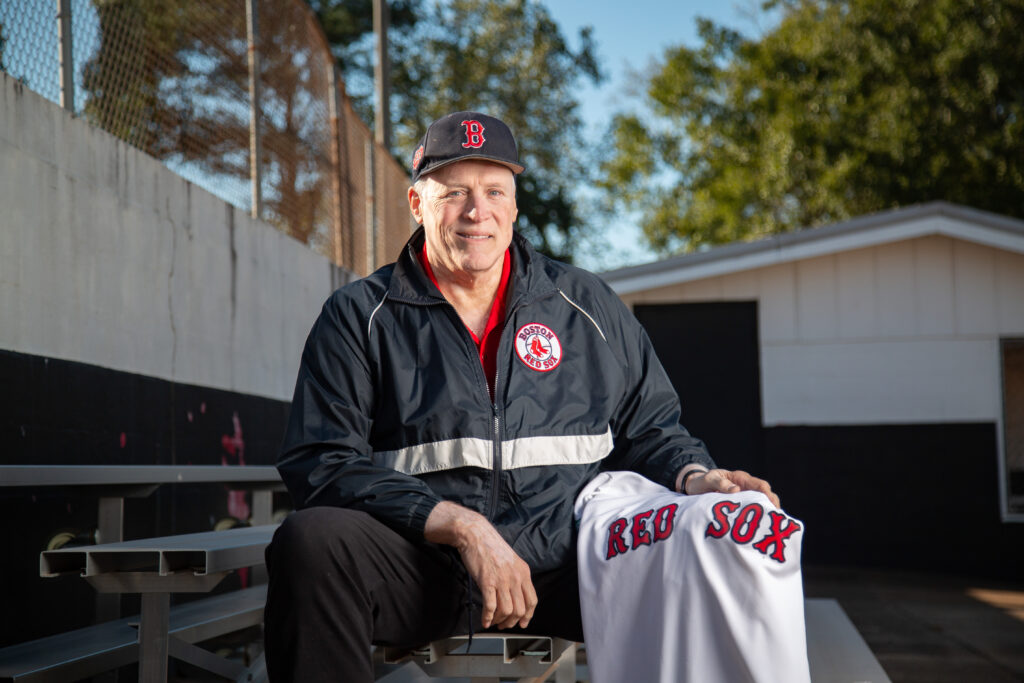
Following the 1976 season, Jack started on a new journey off the field as he married his wife of now 48 years, Amy, a music major Samford University. The two met each other at church, with their faith as a cornerstone in the relationship.
In 1977, Jack was sent back to Pawtucket and had a brief stint once again in Boston before finishing out the season in AAA. An injury in 1978 saw him return to an old love of the game: pitching. That season he worked 11 games and pitched 38 innings, his first start leading to a 5-0 shutout.
However, 1978 would serve as Jack’s final season in professional baseball. He returned home to Birmingham to build his life with Amy, and back to Baker Dairy. “During two years of marriage, Amy and I lived in 11 different cities. It was time for stability, so the dairy in Birmingham is where we started, as I had never stopped while playing baseball. For 18 years, we worked to make it the largest-volume plant in the state,” Jack remarked.
Though Baker Dairy was sold to Barber Dairy in 1996, Jack continued to work for Barber for three additional years before he found his next calling: helping guide young people through his work with the FCA.
“Back at Auburn, FCA had mostly been football players. A couple of years after I graduated and was playing minor league ball, I’d still frequent campus. Andy Wilson, who was an assistant baseball coach at Birmingham-Southern and worked with FCA, asked if I could speak to the Alabama School for the Deaf and Blind and bring in pictures with me in action,” Jack said. “Throughout the entire time with those young people, I couldn’t help but feel touched. The kids were so grateful and left such an impression on me—I knew God was telling me, ‘I can use you because you’re an athlete and you can influence.’ That started my journey in 1974.”
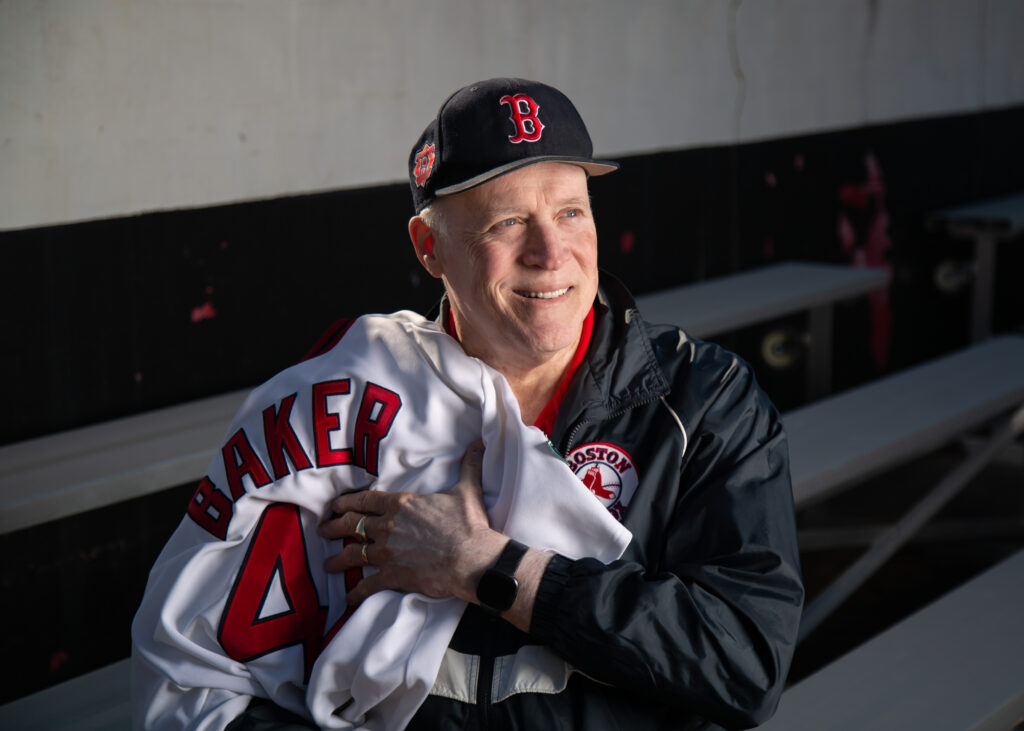
Today, Jack serves as State Director of Talent Advancement for the organization. In this role, he is responsible for encouraging and supporting multi-area and area directors in recruiting and evaluating potential staff, assisting in the hiring process, and training new hires.
Jack admits that finding a source of strength and comfort for the world’s youth is becoming more complicated and states the need for early involvement in a child’s life is paramount to affecting change. “With what kids go through now requires a lot of care, and the one area we lack is when it comes to authority. How the daily cycle of violence is stopped is to get involved with kids daily—they have to have an escape in a godly atmosphere where they can feel safe to discuss their problems and have help with their concerns,” Jack said. “FCA provides young people with those tools and skills that they can spread to their peers, acting not with violence, but with positive forethought.”
Jack’s journey has helped shape not only his life, but the lives of countless young people who have joined FCA.
“We’ve seen so much advancement since I first began working with the FCA—we have a presence in virtually every sport, which has enhanced our ability to reach young people who need God’s teaching and example,” Jack said. “If we can reach just a few young athletes who will share Jesus’ example with a few friends, it can start a lot of momentum and start positive change.” TG

